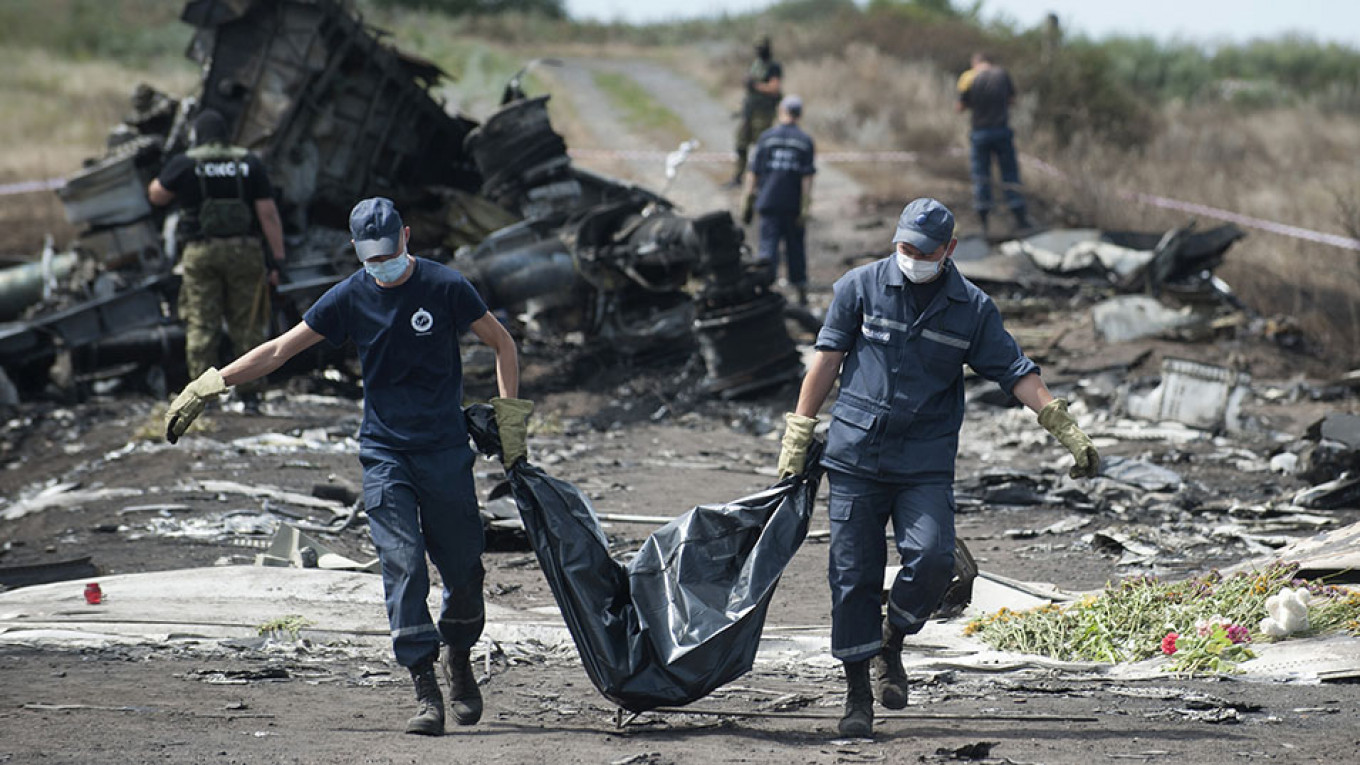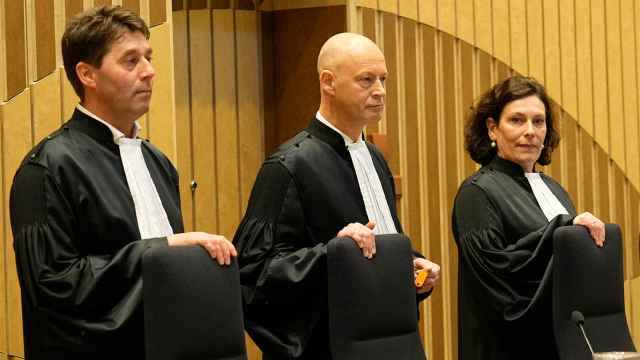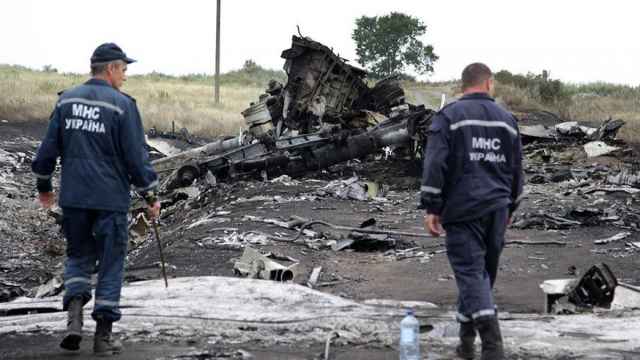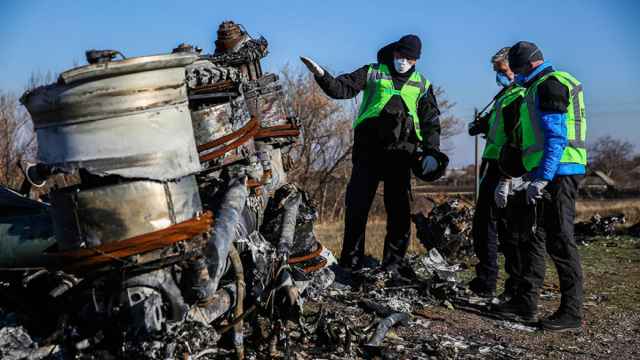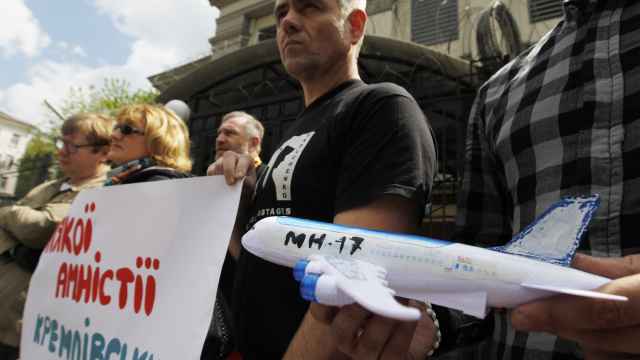The fifth anniversary of the tragic shooting down of the MH17 passenger flight, hit over the Donbass by a Russian-supplied missile, prompted the inevitable calls for Moscow to take responsibility. What are the chances the Kremlin could manage a resolution, or at least de-escalation of this issue? Not much, unless it is part of some wide deal over the Donbass.
Up to now, the Russians have flatly disavowed any role in the debacle, advancing instead a series of increasingly implausible counter-arguments placing the blame on everyone from Kiev to the CIA. They have refused to cooperate within the terms of the Dutch-led Joint Investigation Team, and the three Russian nationals and a Ukrainian to be tried on murder charges in the Dutch courts are all being sheltered by Moscow.
In this context, a full reversal of policy seems near-enough impossible. The evidence suggests that while the fateful missile was fired by Ukrainian anti-government militants, it was supplied by the Russian 53rd Air Defense Brigade under orders from Moscow and in a process managed by Russian military intelligence.
To admit this would not only be to acknowledge a share in the unlawful killing of 298 innocents, but also an unpicking of the whole Kremlin narrative over the Donbass. It would mean admitting to having been an active participant in this bloody compound of civil war and foreign intervention, to having armed the militants without due thought as to the consequences, and to having lied to the world and the Russian people for half a decade.
And for what?
The Kremlin would be unlikely to gain any real credit for belatedly coming clean.
Given the continuing annexation of Crimea and war in the Donbass, it is unlikely there would be any substantive shift on sanctions. If anything, the perverse outcome is that this would empower those hawks who believe that this is some kind of existential struggle between the Western liberal order and an evil Russia. You see, they would argue: the more pressure on the Kremlin, the more it is forced to concede.
That the outcome of such attitudes is only to empower the hawks in Moscow who regard themselves in an equally existential struggle for Russia’s survival as a distinctive culture and independent force in global affairs is a tragic irony neither is likely to recognize.
Besides, Moscow cannot hand over those responsible.
Apart from the fact that its constitution bars extraditing its own citizens, there is a wider issue about being loyal to one’s own. This is an adhocratic system which expects its agents — from spies and diplomats to propagandists and businesspeople — to be entrepreneurial, to be active, often on their own initiative, in any ways that could help drive the Kremlin’s agenda forward.
This depends not on the stick but the carrot. They need to know that the Kremlin will reward them if they succeed, and have their back either way. Given how harsh a critic of the government he has become, it might be tempted not to protect Igor ‘Strelkov’ Girkin, for example, the then- minister of defense of the unrecognized Donetsk People’s Republic.
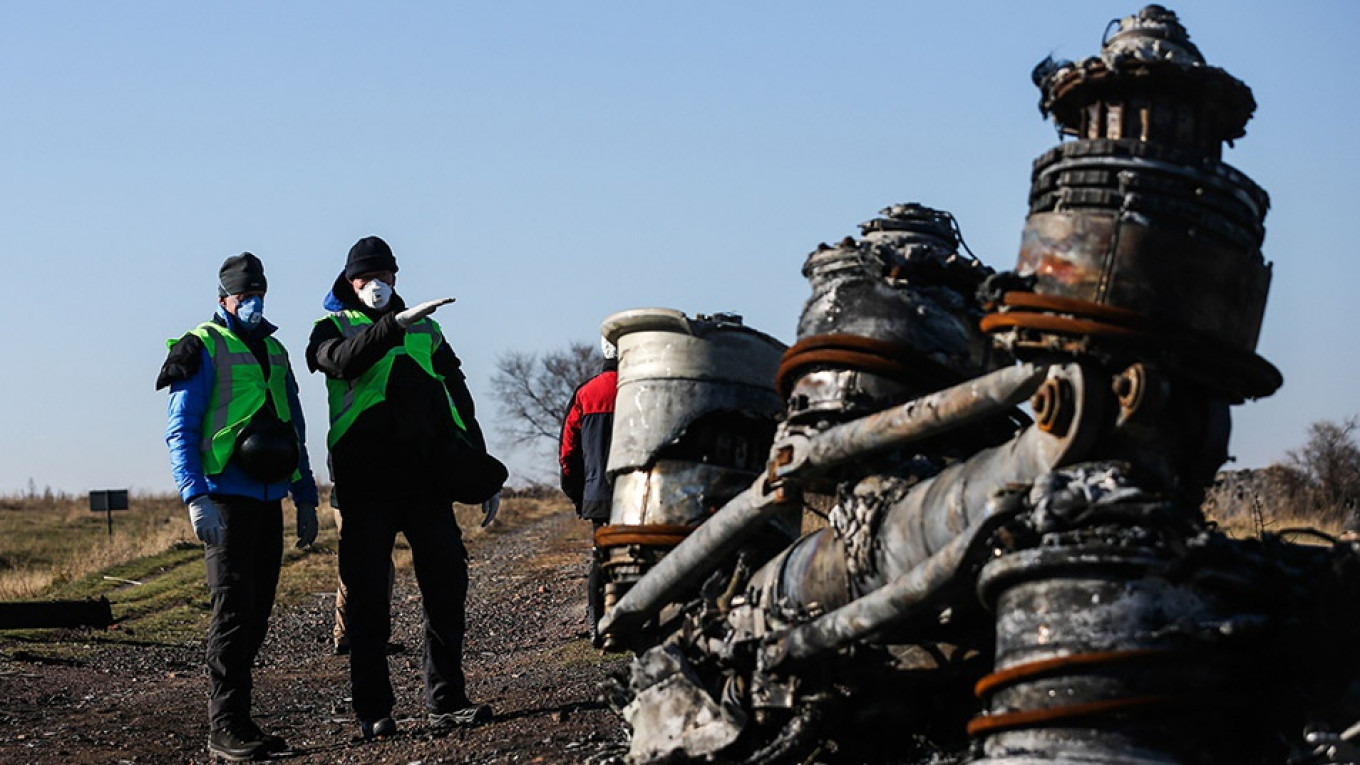
But however satisfying it might be, this would give a terrible signal to the next Kremlin-instructed or inspired maverick thinking of some other act of geopolitical adventurism in the name of the Motherland.
A more plausible and Machiavellian approach would be quiet overtures to the Netherlands, building on the existing conversation with prime minister Mark Rutte, given that they have led the investigations as most of the victims were Dutch.
The Kremlin could uncharacteristically throw itself on their mercy. It was a screw-up, the line would be, and yes, we compounded it by lying and stonewalling. But here we are, five years on, at an impasse.
You cannot expect us to admit everything, that would be politically catastrophic, and frankly if that’s the only alternative, you force us to hold the existing line. But we are willing to try and get past this.
Without admitting blame, we will pay compensation to the victims’ families. We will guarantee not to put such weapons in the insurgents’ hands again. We may not tell the truth, but we will at least stop peddling lies about the attack. Just try and work with us, to see what can be done.
This would have the virtue of being unexpected, of approaching the Dutch from a position of weakness and humility, not strength and bombast, and placing the responsibility for finding some kind of face-saving solution on them. For this very reason, it is unlikely to appeal this Kremlin, which seems to make a fetish of the appearance of strength. Likewise, it is also very unlikely the Dutch could or would help the Kremlin extricate itself.
The irony is that resolving the MH17 crisis is harder than, or at least inextricable from, a resolution of the whole Donbass issue. In this context, though, a backdoor overture over the former might be a prelude to the latter.
Having failed its Plan A in Ukraine, of stirring up short-lived instability in the Donbass to force Kiev to return to Moscow’s sphere of influence, the Russians have cycled through a series of other policy options, from ‘Novorossiya’ onwards. All have failed.
The current situation is hardly their preferred outcome: They never cared about the Donbass, only in using it as a lever on Kiev. From their point of view, the status quo is bearable, but expensive, from the cost of bankrolling the pseudo-states to continuing Western sanctions.
It is possible that after Sunday’s Ukrainian parliamentary elections, which will give Moscow a sense of Zelenskiy’s strength and thus freedom of maneuver, the Russians will quietly float the idea of a deal whereby their withdrawal from the Donbass would be traded for a soft recognition of Crimea.
Not that they expect any overt acceptance, but their likely ideal would be something akin to how the West never formally recognized the Soviet annexation of the Baltic States, but in practice acknowledged the reality on the ground. The corollary would be a relaxation of at least EU sanctions.
Moscow could possibly reach out directly to Kiev, but it would be hard to see such a deal being acceptable — and not leaked within the day. Instead, it might prefer to talk to the Europeans.
Many would like some kind of ‘reset’ with Russia, and if they were on board, the calculation might be that they would provide Zelenskiy with the alibi to accept a deal many Ukrainians would resent, allowing him to present it as something foisted on Ukraine by the EU. An overture to the Dutch on MH17, in this context, would not even really be about MH17, but a way of feeling out the possibilities for a wider conversation.
Ultimately, though, this is probably a thought exercise that is going nowhere, and none of these options are likely to bear fruit. Just like the Crimean and Donbass issues, the MH17 is, sadly, most likely to end up sitting on the desk of whoever eventually becomes the next president of Russia.
A Message from The Moscow Times:
Dear readers,
We are facing unprecedented challenges. Russia's Prosecutor General's Office has designated The Moscow Times as an "undesirable" organization, criminalizing our work and putting our staff at risk of prosecution. This follows our earlier unjust labeling as a "foreign agent."
These actions are direct attempts to silence independent journalism in Russia. The authorities claim our work "discredits the decisions of the Russian leadership." We see things differently: we strive to provide accurate, unbiased reporting on Russia.
We, the journalists of The Moscow Times, refuse to be silenced. But to continue our work, we need your help.
Your support, no matter how small, makes a world of difference. If you can, please support us monthly starting from just $2. It's quick to set up, and every contribution makes a significant impact.
By supporting The Moscow Times, you're defending open, independent journalism in the face of repression. Thank you for standing with us.
Remind me later.



